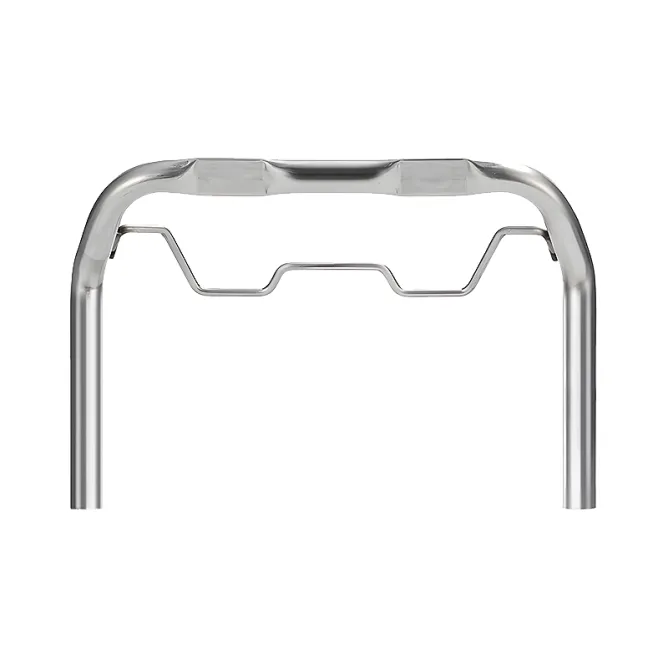precision metal tubing
Dec . 13, 2024 07:37
The Role of Precision Metal Tubing in Modern Industries
In today's rapidly evolving industrial landscape, precision metal tubing has emerged as a crucial component across various applications. From aerospace to medical devices, the demand for high-quality, engineered metal tubes is more significant than ever. This article explores the characteristics, manufacturing processes, and applications of precision metal tubing, shedding light on its importance in modern technology.
Understanding Precision Metal Tubing
Precision metal tubing refers to seamless or welded tubing that is manufactured to strict specifications for dimensional accuracy, surface finish, and mechanical properties. It is typically crafted from metals such as stainless steel, aluminum, brass, and copper. The term precision indicates that these tubes adhere to tight tolerances, which are essential for applications where reliability and consistency are critical.
One of the defining features of precision metal tubing is its ability to be customized. Manufacturers can modify various parameters, including wall thickness, diameter, length, and finish, to meet specific requirements. This versatility makes precision metal tubing suitable for a wide range of applications in several industries.
Manufacturing Processes
The production of precision metal tubing involves various methods, each catering to different requirements
. The two primary techniques are
1. Seamless Tubing This method involves extruding the metal to form a hollow tube without any seams. The seamless approach ensures uniformity in strength and durability, making it ideal for high-pressure applications. The tubing is then subjected to processes such as heat treatment and cold working to achieve desired mechanical properties.
2. Welded Tubing In contrast, welded tubing is produced by taking flat metal sheets and rolling them into a tube shape, followed by welding the edges together. While this process can be more cost-effective than seamless production, it may not offer the same level of strength or consistency. However, advancements in welding techniques, such as laser welding, have enabled the production of high-quality welded tubing that meets various industry standards.
precision metal tubing
Other important processes include drawing and finishing, where the tubes undergo further shaping and surface treatment to enhance their properties. Techniques like polishing and passivation improve corrosion resistance and aesthetics, ensuring that the tubes perform well in their intended environments.
Applications in Various Industries
Precision metal tubing finds applications in numerous sectors. Here are a few examples
1. Aerospace The aerospace industry requires tubes that can withstand extreme temperatures and pressures. Precision metal tubing is utilized in fuel and hydraulic systems, where reliability and performance are paramount. The lightweight nature of aluminum tubing is particularly advantageous in aircraft manufacturing.
2. Medical In the medical field, precision metal tubing is integral to devices like catheter systems, stents, and surgical instruments. The materials used must meet stringent biocompatibility standards, and manufacturers often produce custom sizes and shapes to fit specific medical applications.
3. Automotive The automotive industry utilizes precision metal tubing in various systems, including fuel lines, exhaust systems, and structural components. Engineers rely heavily on the strength-to-weight ratio of these tubes, making them essential for improving fuel efficiency and overall vehicle performance.
4. Industrial Equipment Many types of machinery and equipment rely on precision tubes for fluid transfer, heat exchangers, and structural supports. The ability to maintain consistent dimensions and tolerances translates to better efficiency and reliability in equipment operation.
Conclusion
Precision metal tubing is undeniably a backbone of many modern industries, reflecting the advancements in manufacturing technology and material science. As industries continue to demand more specialized solutions, the manufacturing of precision metal tubing will evolve to meet these needs. With its myriad applications and the push for innovation, precision metal tubing will remain a vital element in the quest for efficiency, safety, and performance in the global marketplace.
 Afrikaans
Afrikaans  Albanian
Albanian  Amharic
Amharic  Arabic
Arabic  Armenian
Armenian  Azerbaijani
Azerbaijani  Basque
Basque  Belarusian
Belarusian  Bengali
Bengali  Bosnian
Bosnian  Bulgarian
Bulgarian  Catalan
Catalan  Cebuano
Cebuano  Corsican
Corsican  Croatian
Croatian  Czech
Czech  Danish
Danish  Dutch
Dutch  English
English  Esperanto
Esperanto  Estonian
Estonian  Finnish
Finnish  French
French  Frisian
Frisian  Galician
Galician  Georgian
Georgian  German
German  Greek
Greek  Gujarati
Gujarati  Haitian Creole
Haitian Creole  hausa
hausa  hawaiian
hawaiian  Hebrew
Hebrew  Hindi
Hindi  Miao
Miao  Hungarian
Hungarian  Icelandic
Icelandic  igbo
igbo  Indonesian
Indonesian  irish
irish  Italian
Italian  Japanese
Japanese  Javanese
Javanese  Kannada
Kannada  kazakh
kazakh  Khmer
Khmer  Rwandese
Rwandese  Korean
Korean  Kurdish
Kurdish  Kyrgyz
Kyrgyz  Lao
Lao  Latin
Latin  Latvian
Latvian  Lithuanian
Lithuanian  Luxembourgish
Luxembourgish  Macedonian
Macedonian  Malgashi
Malgashi  Malay
Malay  Malayalam
Malayalam  Maltese
Maltese  Maori
Maori  Marathi
Marathi  Mongolian
Mongolian  Myanmar
Myanmar  Nepali
Nepali  Norwegian
Norwegian  Norwegian
Norwegian  Occitan
Occitan  Pashto
Pashto  Persian
Persian  Polish
Polish  Portuguese
Portuguese  Punjabi
Punjabi  Romanian
Romanian  Samoan
Samoan  Scottish Gaelic
Scottish Gaelic  Serbian
Serbian  Sesotho
Sesotho  Shona
Shona  Sindhi
Sindhi  Sinhala
Sinhala  Slovak
Slovak  Slovenian
Slovenian  Somali
Somali  Spanish
Spanish  Sundanese
Sundanese  Swahili
Swahili  Swedish
Swedish  Tagalog
Tagalog  Tajik
Tajik  Tamil
Tamil  Tatar
Tatar  Telugu
Telugu  Thai
Thai  Turkish
Turkish  Turkmen
Turkmen  Ukrainian
Ukrainian  Urdu
Urdu  Uighur
Uighur  Uzbek
Uzbek  Vietnamese
Vietnamese  Welsh
Welsh  Bantu
Bantu  Yiddish
Yiddish  Yoruba
Yoruba  Zulu
Zulu 












